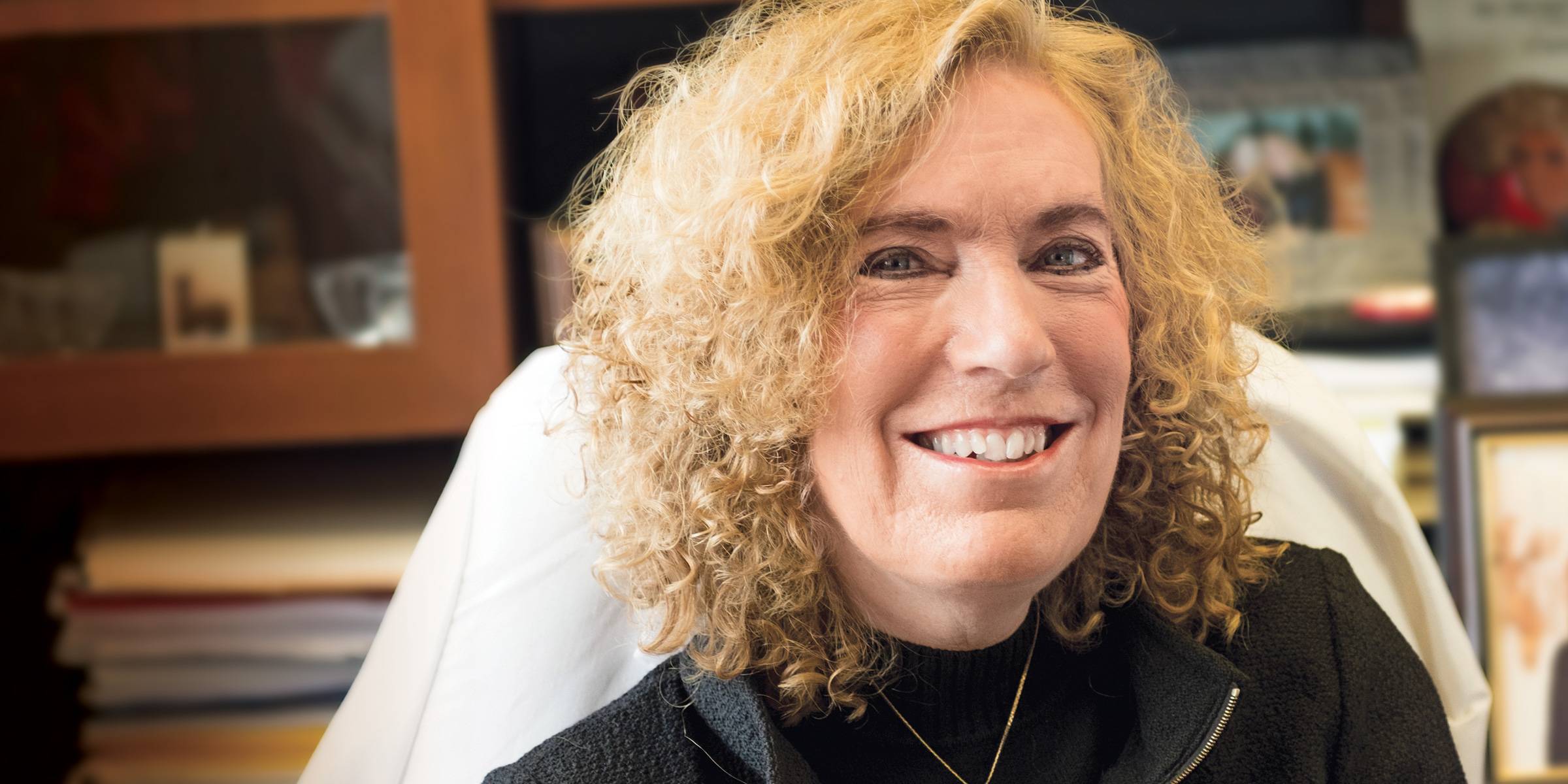Elaine Fuchs, Ph.D.
Rebecca C. Lancefield Professor
Investigator, Howard Hughes Medical Institute
Adult stem cells reside in all tissues, where they replenish dying cells and repair wounds. Using mammalian skin as a model, Fuchs studies the remarkable properties of tissue stem cells, and how they know which tasks to perform and when. She explores how stem cells sense and communicate with other cells in their environment. Aiming at advancing therapeutics, she dissects how communication networks malfunction in inflammation, aging, and cancers.
Fuchs’s lab couples in vitro studies with mouse genetics to study the biology of skin stem cells. Her research employs high throughput genomics, single cell sequencing, live imaging, cell biology, and functional approaches to unravel the pathways that balance stem cell self-renewal with tissue regeneration. Her team investigates how stem cells establish unique chromatin landscapes and programs of gene expression, and how this shifts in response to changes in their local environment. They also study the signaling pathways that must be turned on and off at the right time and place for adult skin stem cells to become activated to regenerate tissue. They seek to discover the activating signals from the neighboring cells that instruct the stem cells to make hair or repair wounds, and the inhibitory signals that tell them to stop making tissue.
The Fuchs lab has found that communication between stem cells and their neighbors, particularly immune cells, can become altered, and this can cause the stem cells’ proliferation to either accelerate (in the case of inflammation) or slow (as occurs during aging). The team also discovered that epithelial stem cells retain an epigenetic memory of their inflammatory encounters. These changes can still be detected within the stem cell’s chromatin long after inflammation resolves. Fuchs hopes that unraveling the mechanisms of inflammatory memory will guide the discovery of new routes for treating disorders such as psoriasis, atopic dermatitis, and inflammatory bowel disease.
Fuchs’s group also learned that cancer cells hijack the basic mechanisms that enable stem cells to replenish dying cells and to repair wounds. A major focus of the lab is on squamous cell carcinomas, which are among the most common and life-threatening human cancers worldwide. Fuchs’s group has used high throughput genomics in mice to identify and characterize the features of the cells that propagate these cancers in skin. They devised methods to mark and track the behavior of these tumor-initiating stem cells and discovered that not only are these cells at invasive fronts of the cancers, but they are also responsible for tumor relapse following chemo- and immune-therapies administered to mice with tumors. By dissecting the underlying mechanisms, performing high-throughput functional screens for oncogenes and tumor suppressors in mice, and relating their findings to humans, Fuchs hopes her research will lead to new therapeutic approaches that target the cancerous stem cells without affecting tissue stem cells.
Overall, Fuchs studies tissue biology at multiple levels, from its stem cells and the signals that control them to the epigenetic, transcriptional, and translational programs that maintain an orchestrated balance of tissue growth. While the foundations of normal tissue homeostasis and injury repair are still unfolding, the fundamental discoveries that Fuchs’s lab has made already provide insights into how skin and its stem cells cope with different environmental stresses, including aging, inflammation, and cancer, offering new avenues for treating human skin disorders.
Fuchs is a faculty member in the David Rockefeller Graduate Program, the Tri-Institutional M.D.-Ph.D. Program, and the Tri-Institutional Ph.D. Program in Computational Biology & Medicine.
